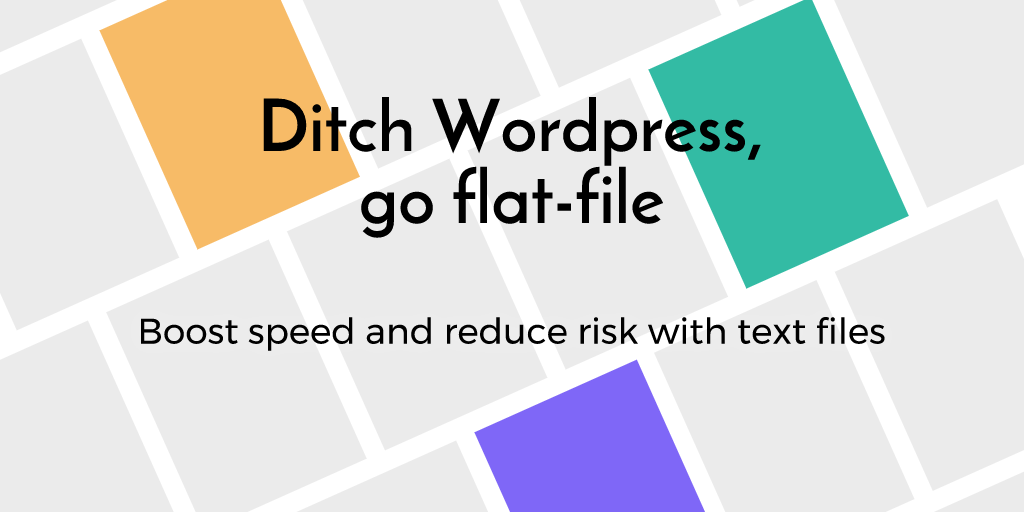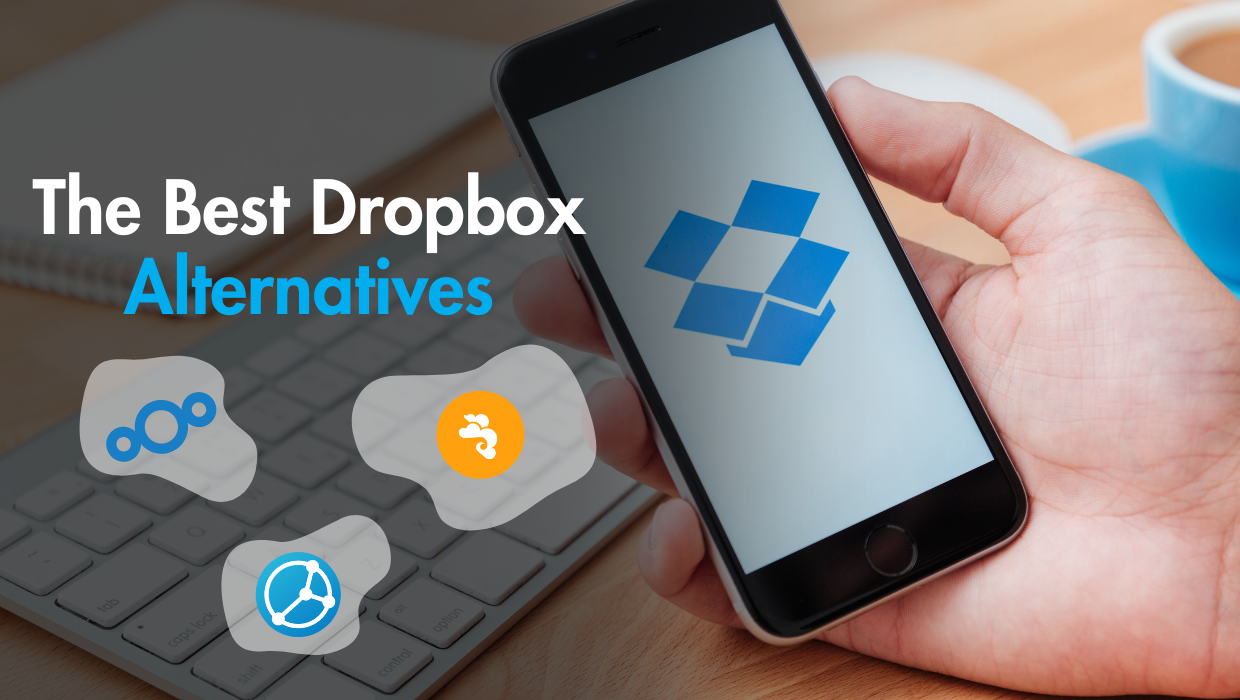Why would you even be looking for WordPress alternatives?
Well, WordPress might be the most popular way to host a website—blog or not—but it's not the only way. Or even the best way, depending on your circumstances.
Because WordPress depends on a MySQL database to store information about posts, pages, users, and comments, the technical overhead to keep things running smoothly is a little more complex than plain 'ol HTML and CSS.
Having a database is another opportunity for failure, another potential attack vector, and constantly pinging a database can slow down popular websites, forcing administrators to rely on caching.
And that leaves many developers looking for fast, well-supported WordPress alternatives.
What's different about a flat-file CMS?
Flat-file content management systems (CMS) present an alternative vision: instead of pulling content from a database, these systems pull content from a plain text/Markdown file.
These text files can be edited in text editors or via a WordPress-like dashboard and can be deployed via Git, SCP, FTP, and more. That makes for faster and secure WordPress alternatives—you just choose which features you need most.
Pros and cons of a flat file CMS as a Wordpress alternative
Before we dive into the options, and in all fairness, let's take a moment to consider why you would and wouldn't want to host your website via a flat-file CMS.
The pros:
- Full-feature
- No SQL injection: Even great developers can create SQL injection vulnerabilities—leaving a database out of the equation certainly boosts security in this regard, and lowers the risk of catastrophic crashes.
- Version control everything: If you use Git for your projects, controlling your entire site—from templates to actual content—becomes trivial. You get all the peace of mind of version control without any additional complexity.
- Speed: Without database queries, pages should load faster—because speeds affect everything from conversions to Google search rank, which could make an impact on the bottom line.
The cons:
- Lack of plugins/community: All of the flat-file CMSs listed below have communities that are significantly smaller than WordPress', or even others like Django. This means fewer available plugins and potentially less community technical support if things go wrong.
- Unfamiliar environment: If you're a web developer building websites for clients, they might not appreciate being thrown into a new CMS environment after spending most of their time in WordPress previously. If it's a personal website, you should consider your own learning curve as well.
- No search or sort: Without a database to organize your content, reliable site search, and sorting becomes a lot more difficult to implement. Some flat-file CMSs have similar capabilities, but they're usually not quite as inherently robust as what you get with a relational database.
The unknowns:
- Development speed: Some argue that flat-file is easier to develop, but I think it's safer to say that this mostly depends on what you're trying to develop, and how complex the end result is meant to be. There's no clear winner here except whatever solution gets the job done.
- Flexibility: Again, chalk this one up to developer skill and ambition. Flat-file CMSs are likely to be less complex than Wordpress' internals, but that could be both good and bad, depending on your needs.
Flat-file CMS vs. static site generator
You might have heard another term thrown around when it comes to Wordpress alternatives: the static site generator. While both flat-file and static blogs ditch a database in favor of plain text or
by subscribing to our newsletter.

